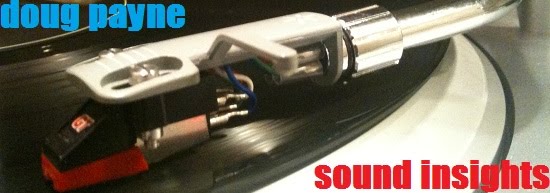
Where pianists are concerned, jazz and its patrons are vocal about their signifiers. It's difficult to pick an era in the music that doesn't have at least one representative one can argue about or one abstractor who leads the art into the next era.
So how does one "peg" pianist Steve Kuhn?
Perhaps it's wise not too. The Harvard educated pianist had his earliest affiliations with Kenny Dorham, Stan Getz, Art Farmer and John Coltrane. All high-profile names to be sure. But Kuhn's music, as commanding as it was, didn't seem to fit in with any one these revered legends. Indeed, Coltrane fired the pianist after only two months.
It seems to echo what it must have been like to work in the Bush White House. Tow the company line - in the name of whatever - or you'll get booted.
Kuhn is not about doing what's expected. Even though the Steve Kuhn of the 1960s (Three Waves, The October Suite) is hardly the Steve Kuhn of the 1970s (Steve Kuhn, Trance) and nothing at all like the Steve Kuhn of the 80s, 90s and 00s, whose vast recorded output has been courtesy of labels all well outside the bounds of his native United States, Kuhn has never ever stooped to the predictable or declined to the marketable.
He is an artist, through and through. And judging by the sadness of so much of his music, he has suffered as an artist often does. That's probably why he's never earned an American recording contract. American record companies don't generally buy in to such rabid iconoclasm. Some of us, though, do. And, thankfully, there are great artist-oriented labels like ECM that do too.
Following last year's Japanese-only release of Steve Kuhn's The Early 70's, featuring the entire contents of Steve Kuhn (1971) and six never-before issued tracks from 1973 (four of which were later recorded for the ECM album Trance), ECM has issued this "three-fer" set titled Life's Backward Glances, featuring three of the eight albums Kuhn has recorded for ECM (unfortunately 1978's Non-Fiction remains out of print, even though it would have been perfect for this collection).
It's probably not the set I would have put together. But it's a remarkable set none the less, spotlighting Kuhn's solo Ecstasy (1974), the often brilliant Motility (1977) and Playground (1979).
Ecstasy is a solo piano date. Motility finds Kuhn in a quartet with Steve Slagle on soprano sax, alto sax and flute, Harvie Swartz (now Harvie S) on bass and the unfortunately departed Michael Smith on drums. Playground is another quartet, with vocalist Sheila Jordan trading licks with Kuhn and Swartz again on bass and Bob Moses on drums.
The first disc, Motility, contains many of the set's greatest charms. Kuhn contributes some of his strongest playing on his own "Oceans In The Sky," "Deep Tango," "The Child Is Gone" and "A Danse For One." Swartz contributes what are arguably the set's two best tunes, "Catherine" and "Places I've Never Been," which also elicit some marvelous passages from the pianist.
Playground, the set's second disc, is obviously more geared to Kuhn's "songs" as they all feature vocalist Jordan emoting Kuhn's plaintive and poetically simple and painful lyrics. Kuhn had performed some of these tunes before, singing himself on "Tomorrow's Son" (aka "Time To Go") and "The Zoo" (aka "Pearlie's Swine") - both heard on the 1971 album Steve Kuhn, featuring arrangements by Gary McFarland - and "Poem For No. 15" (aka "The Saga of Harrison Crabfeathers") and "Life's Backward Glance" from Ecstasy. Jordan seems to be recorded somewhat in the background here, which is a little strange at first, but becomes much more engaging as it goes on. Kuhn almost bristles with magic here, freed from the demands of singing himself, and expounding on his extremely unusual yet still entrancingly melodic songs.
The set's final disc, Ecstasy, is Kuhn's very first solo recording, caught at producer Manfred Eicher's insistence on the day after recording the excellent and more electric Trance (which is not included here) in November 1974. Featured here are the lovely and lyrical "Silver," an ode to Kuhn's former lover, vocalist Monica Zetterlund, "Ulla" (aka "Remembering Tomorrow") and the eponymous "Life's Backward Glance."
The beauty of Life's Backward Glances is its artistic strength. There is a vitality here that justifies not only a significant facet of Steve Kuhn's musical career but also showcases an iconoclastic artist with his own vision, his own voice and his own view and individual artistry. This is a highly recommended musical achievement by an iconoclast who still gets many recording opportunities, mostly thanks to the brilliant Japanese label, Venus Records.


No comments:
Post a Comment